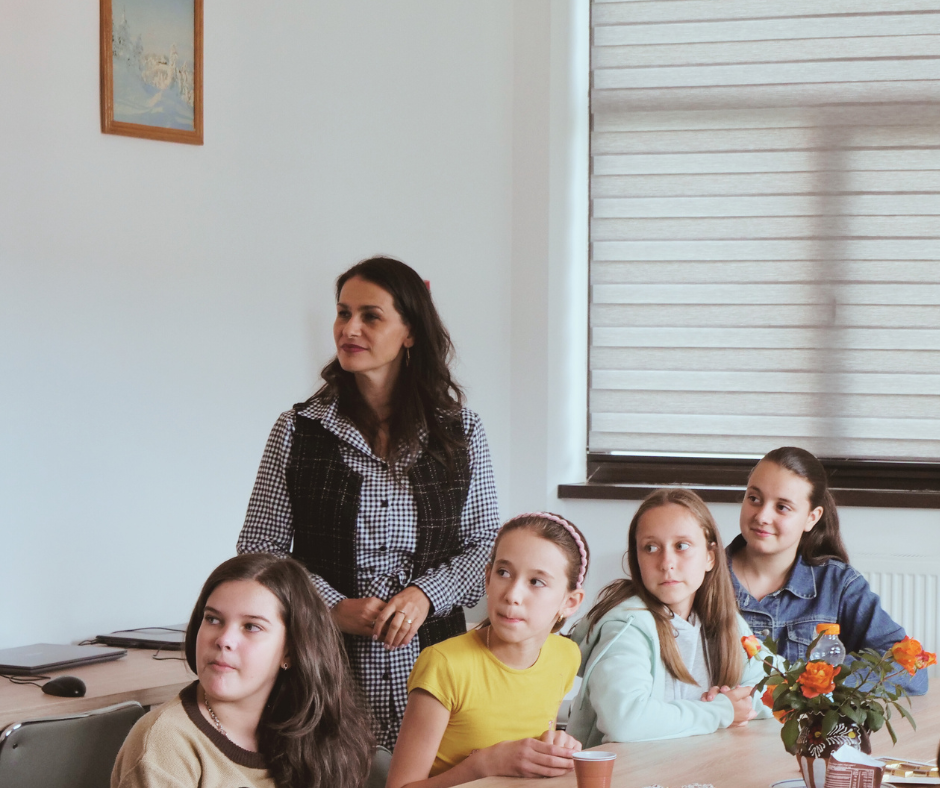
In an ever-changing digital landscape, Vodafone Foundation is actively contributing to closing the digital skills gap through innovative programmes across Europe. This article will look into and link together some of their initiatives, specifically the ones taking place in Turkey, Greece, and Romania, where they are making a tangible impact, reshaping education, and extending beyond traditional classrooms. These initiatives are targeting teachers and making an impact on them and on their students, through them.
Empowering Through Code: Coding Tomorrow Project in Turkey
The Coding Tomorrow project, a partnership between Vodafone Turkey Foundation and Habitat Association launched in 2016, aims to invest in coding education to empower Turkish youth. It equipsparticipants with essential digital skills and fosters innovation. The goal is to enhance educational opportunities and prepare young individuals for the challenges and opportunities of the digital age.
Ebru Zeynep Şahin, a second-year student at Marmara University, initially volunteered with the Coding Tomorrow project as a Scratch trainer. Throughout her classes, Ebru not only shared her existing knowledge but also found herself delving deeper into programming in response to her students' inquisitive questions. Ebru's commitment to developing a holistic development mindset in the classroom not only advanced her own skills, but also significantly improved her students' digital competencies.
Nurturing Tomorrow's Talents: Generation Next in Greece
Developed by the Vodafone Foundation in Greece, in collaboration with SciCo and Ellinogermaniki Agogi, Generation Next is an educational programme aimed at fostering skills through Science, Technology, Engineering, and Mathematics (STEM). What sets this programme apart is its commitment to providing free access to new technologies and science, creating an inclusive learning environment for all. The programme not only equips students with essential skills but also offers a valuable resource for teachers through approved learning materials.
One testament to the programme's success is the personal experience of educators like Eirini, who has been teaching Computer Science for nearly two decades. The programme enabled her to think beyond traditional boundaries. No longer confined to teaching solely through a computer, Eirini has embraced a broader STEM perspective, fostering a collaborative and dynamic learning environment.
Generation Next is more than an educational programme, it is a catalyst for change in the Greek educational landscape. By providing free access to STEM education and fostering a collaborative spirit, the initiative is shaping a future generation equipped with the skills and mindset to address the challenges and opportunities of tomorrow.
Skills Upload Jr. Programme in Romania
School of the Future is part of the Skills Upload Jr. Programme, an initiative of Vodafone Foundation Romania created to encourage educators and students to develop their critical thinking and creative use of digital technologies. Ioana Goran, librarian at the "Antim Petrescu" Public Library in Păușești-Măglași, Vălcea County said“The "Green School of the Future" successfully accompanied the projects of our public library whose purpose is to train or improve children's digital skills and bring current environmental issues to their attention.”
The methodology from the “School of the Future” programme was designed by Vodafone Spain Foundation in collaboration with the University of Salamanca, in line with the five areas of competence defined in DigComp.
- Project locations
- RomaniaGreeceTürkiye
